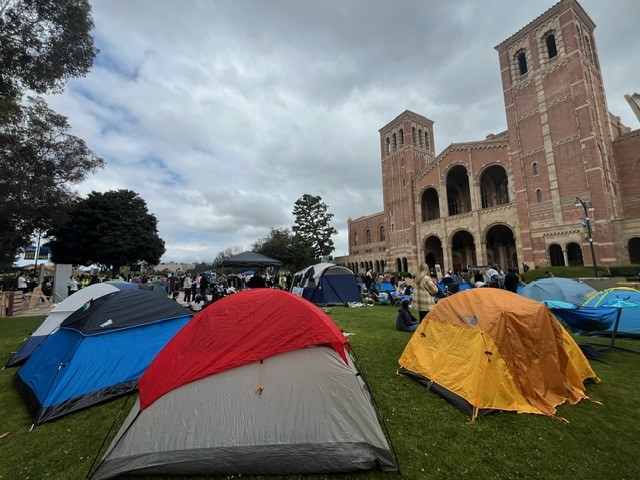Alicia Fraser-Stanley says she was 18 attending the University of Southern California when she went for an appointment with former school gynecologist George Tyndall.
"His hands were wandering nowhere near where they should have been wandering," Fraser — Stanley said. "I told him my ovary is nowhere near there."
Cynthia Jansen was also a young college student in 1989 when she says she was touched inappropriately by Tyndall.
"It was invasive," said Jansen, a former USC student. "First thing I thought was, 'My god, that's the guy.' Sometimes it does take over 10 years or almost 20 years in my case to feel like you are back to yourself again."
They are among a growing number of people pushing for a new state law that would allow more alleged victims of sex assaults to sue the university by extending the statute of limitations which sets a time limit for filing a lawsuit after an alleged incident.
On Tuesday many former students, including Fraser-Stanley, plan to go to Sacramento and call for a change in state law. The assembly committee is set to review the bill, AB1510. Both Alicia and Fraser-Stanley's alleged incidents with Tyndall are outside of the statute of limitations. The women say they want a chance to have their stories heard in court. They have filed a lawsuit, but before it can move forward they have to successfully argue that the current statute of limitations should not apply in their case. It is a big issue, according to their attorney, who also believes that they have grounds to legally move forward.
The two women say they are speaking out about what happened after hundreds of reports of sexual misconduct and sexual abuse allegations against Tyndall surfaced, who denies all allegations of sexual assault and inappropriate behavior.
Lawmakers in the state capitol are looking to remove time restrictions when there is a sexual assault or misconduct claim by a doctor that occurs at a student health center.
"It's very focused," said Brian Kabateck, an attorney for the women. "It simply says one year beginning in January of 2020 to file a lawsuit if you believe you are a victim of this particular incident. "We are not saying that if this legislation passes, these women automatically win millions of dollars. No quite the contrary. It says the courthouse doors are open to them."
News
Top news of the day
A spokesperson for USC says the attempt to change the law is about money. USC says the expected minimum of their settlement is $2,500 to $250,000.
In a letter to lawmakers provided to the I-Team, USC argues " ... Some in the plaintiffs' bar are seeking larger settlements and more leverage. Why should the rules be changed for them? ..."
The letter points to an existing $215 million federal class-action settlement involving more than 14,000 people currently in the works, adding the settlement "will offer a remedy to every single plaintiff that has been impacted by Dr. Tyndall …"
But a judge wants more details about payments and campus reforms before the settlement can move forward.
The women, meanwhile, want to say what they did not decades back.
"I was a mess and it's taken me all this time to recover," Jansen said. "I'm sitting here by myself today but I don't feel like I'm alone in any of this."



